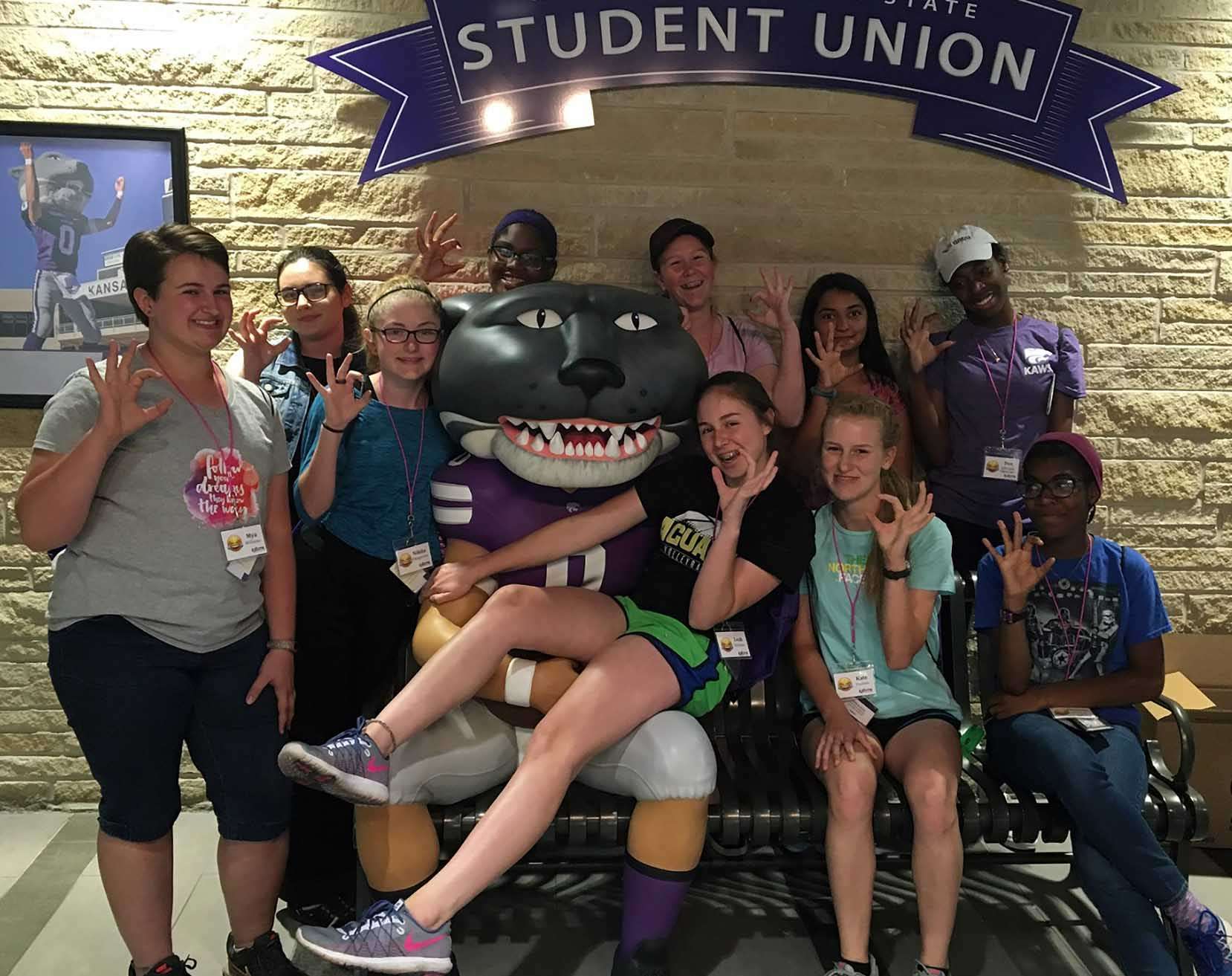
By Scott Edger
Little Apple Post
According to the U.S. Census Bureau, despite making up nearly half of the American workforce, women are still vastly underrepresented in the science, technology, engineering and math (STEM) fields, making up just 27 percent of STEM workforce.
Current Kansas State University STEM students and faculty are taking steps to encourage more females to pursue careers in mathematics and hard sciences.
The K-State Office for the Advancement of Women in Science and Engineering works to increase the participation, retention and advancement of girls and women in STEM fields by hosting two Shadow Days each semester as part of its EXCITE program.

KAWSE serves as home of the ADVANCE, SUCCEED, EXCITE and GROW programs. These programs emphasize the educational and professional opportunities available in STEM disciplines.
The EXCITE program targets high school students with an interest in STEM-related careers. Participants shadow current K-State STEM students for a full school day and experience life as a college student first-hand. While the experiences are geared toward encouraging females, the events are open to all genders.

Students join a K-State ambassador with the same major interests and they go about anormal day at K-State and experience "a day in the life" firsthand, in actual classes and around the campus.
Spurring nascent networking skills is crucial for promoting a supportive, encouraging environment. “Hopefully they can see themselves in the student ambassador they are with,” said Morgan Greene, KAWSE program coordinator.
GROW is a hands-on program for sixth- to eighth-graders, designed to inspire students to pursue a STEM career. SUCCEED is professional development, employment, volunteer and networking programs for undergraduate and graduate students. ADVANCE is for the professional development of postdoctoral STEM students and faculty.
KAWSE has for 10 years facilitated a holistic offering of summer workshops, career chats, and professional development “to support and nurture the interests of girls and women in STEM,” Greene said.
The STEM fields are widely understaffed, and attracting more people to those types of professions is difficult, regardless the gender. It’s even harder with girls.
Research suggests girls’ interest in math and science starts to wane in early middle school. Even as early as preschool kids start to recognize gender in toys and role playing.
These cultural narratives follow kids from an early age and shape their perspectives about who belongs in STEM. Greene said that one of KAWSE’s goals is to disrupt that narrative.
“We’re showing that there is room for everyone in STEM,” Green said. “A person’s ability to thrive in STEM does not depend on their gender.”


